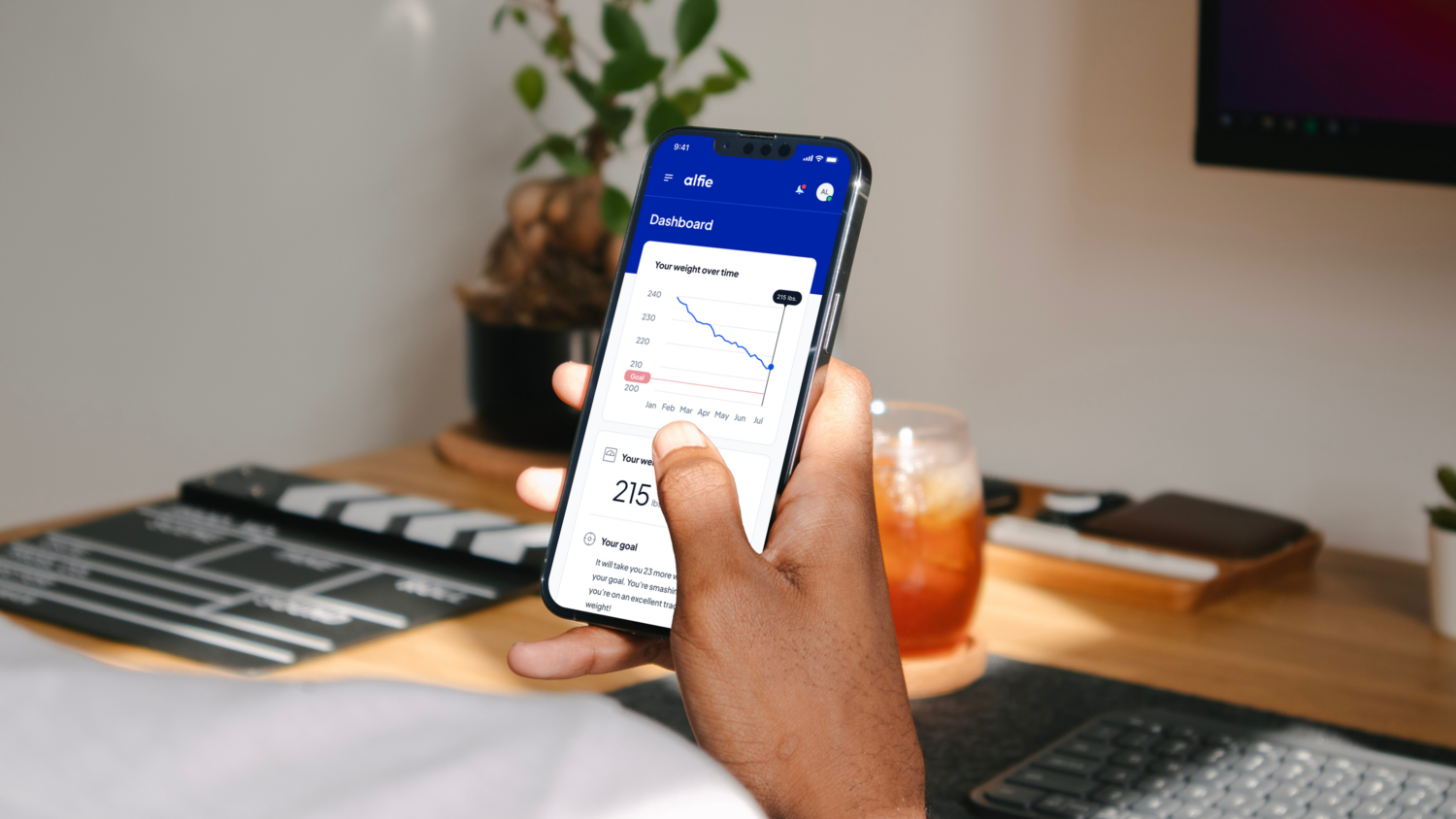
What You Should Know:
- With 42 percent of Americans now struggling with obesity, doctors and their patients are looking for a sustainable approach to weight loss. Currently, prescription medications known as the GLP-1 class of anti-obesity medications (such as Ozempic, Wegovy, Mounjaro, etc.) are becoming extremely popular as a way to lose 10-15 percent of body weight on average. However, these drugs can come with significant issues and downsides.
- Now a new virtual clinic for patients with obesity, Alfie Health, is announcing $2.1 million in funding led by Y Combinator and Nina Capital, along with Goodwater Capital, Phoenix Investment Club and various angels including the founder of unicorn OpenTrons. It is also announcing results achieved by a 300-person cohort of patients who in nine months lost an average of 10 to 15 percent of their body weight—similar to the results of GLP-1s—by adhering to Alfie Health’s holistic approach.
An Evidence-Based Holistic Approach to Tackle Obesity
Developed with input from obesity specialists from Mass General and the Cleveland Clinic, the proprietary ObesityRx system utilizes AI to conduct a metabolic profile of patients to understand why they gain and hold on to weight. The system makes precision medicine recommendations (GLP-1s are often NOT the primary medication), as well as suggestions for behavioral changes. Alfle’s team of specialists and coaches provide ongoing telehealth support. All treatment recommendations are reviewed by Alfie’s medical team.
“The results of our internal study are promising. Our patients have been struggling with obesity for years, or decades in some cases, and frequently suffer from other related health problems,” said Alexander Singh, co-founder and CEO, Alfie Health. “ObesityRx technology provides a unique, data-driven approach that optimizes treatment strategies, streamlining costs associated with obesity and ensuring we strike the perfect balance in prescribing medications. It helps our clinicians determine the root cause of a patient’s obesity and utilize the most effective method from the get-go, which in many cases, may not include one of the GLP-1 medications.”
Alfie Health is currently working with a large cardiology group to manage weight loss for a number of its patients with obesity. They have also partnered with a large enterprise client referring appropriate patients to Alfie. The Alfie Health program is covered by major health insurance providers in select states.
To determine a patient’s personalized metabolic profile and recommended weight loss treatment, Alfie Health’s ObesityRx clinical decision support solution leverages advanced AI algorithms to review a patient’s medical history; lab data; vitals via remote monitoring and patient-reported outcomes (PROs) that address satiety, satiation, and other aspects of metabolism.
The platform makes an initial treatment recommendation for each patient based on their unique metabolic profile. The analysis includes lifestyle change (nutrition, exercise, sleep, etc.) and medications alone or in combination when appropriate such as phentermine, topiramate, naltrexone, bupropion, metformin, and more—in addition to GLP-1s.
Today’s well-publicized GLP-1 medications are in short supply and hard to procure, are very expensive, costing as much as $1,000 a month (depending on insurance coverage, which is limited for most), and patients may have difficulty tolerating them over time. Importantly, certain patients may not lose significant weight while taking GLP-1s, as these medications may not address the specific underlying metabolic dysfunction other medications might treat more effectively.
